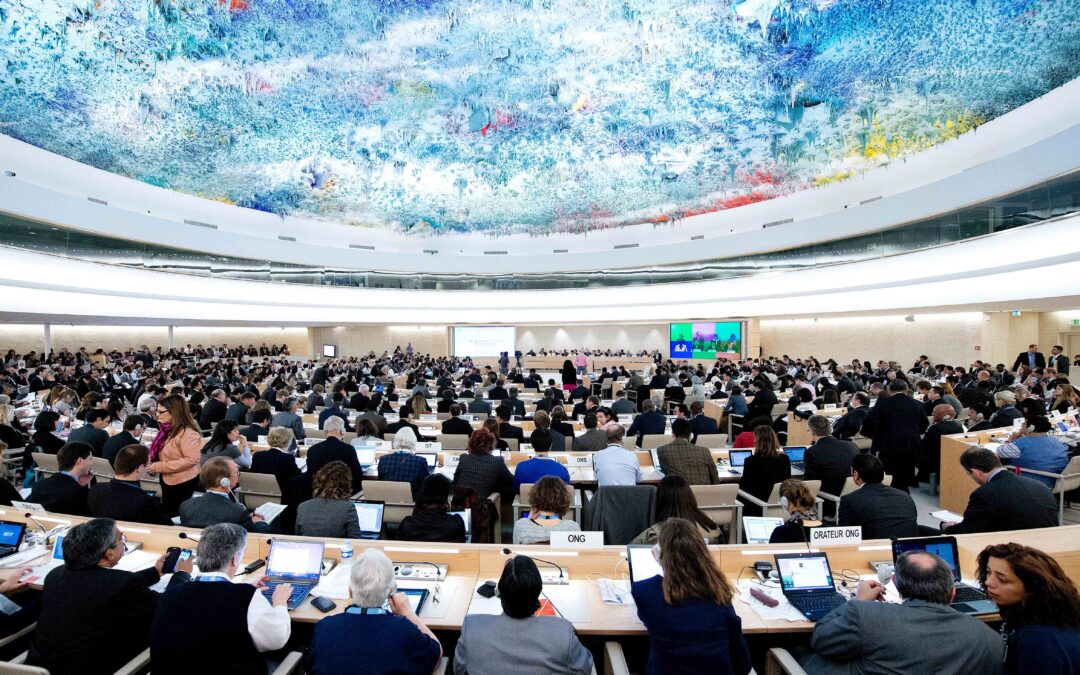
Sep 23, 2019 | Advocacy, Non-legal submissions
The ICJ today drew the attention of the UN Human Rights Council in Geneva, to the Bangkok General Guidance for Judges on Applying a Gender Perspective, in the context of a discussion of “Gender-responsive initiatives to accelerate gender equality”.
The oral statement read as follows:
“International Commission of Jurists (ICJ) welcomes this opportunity to share information on our ongoing work with women judges in many parts of the world, supporting them and their male colleagues to better ensure women’s access to justice and gender equality.
As part of these efforts, facilitated by the ICJ and UN Women, in 2016 judges from the Philippines, Indonesia, Thailand, and Timor Leste developed and adopted The Bangkok General Guidance for Judges on Applying a Gender Perspective.
Among many other provisions, the Guidance urges States to achieve gender parity in appointments to the bench.
The Guidance provides that: “Gender equality should be a principle that guides judicial appointments. Women and men must be equally represented on the bench as they bring a diversity of perspectives, approaches and life experiences to adjudication, which influence the interpretation and application of laws.”
It further recommends that “[i]f necessary, temporary affirmative measures – like quotas which should be consistent with requirements of integrity and high competency – should be implemented in order to assure that women are adequately represented in the judiciary” and that “[e]valuation panels for the appointment and promotion of judges should be composed of men and women.”
The Guidance builds on global standards such as the Universal Declaration of Human Rights’ provisions on equality, non-discrimination, and equal access to public service; article 10 of the UN Basic Principles on the Independence of the Judiciary, on non-discrimination in judicial selection processes; and related articles of the International Covenant on Civil and Political Rights (ICCPR) and Convention on the Elimination of Discrimination against Women (CEDAW).
We hope the Bangkok Guidance will be a useful reference both in considering how to improve gender parity within the Council’s mechanisms, and as a resource for the Council and its mechanisms to cite in their analysis and recommendations to governments and other stakeholders, on improving access to justice for women in Southeast Asia and around the world.”
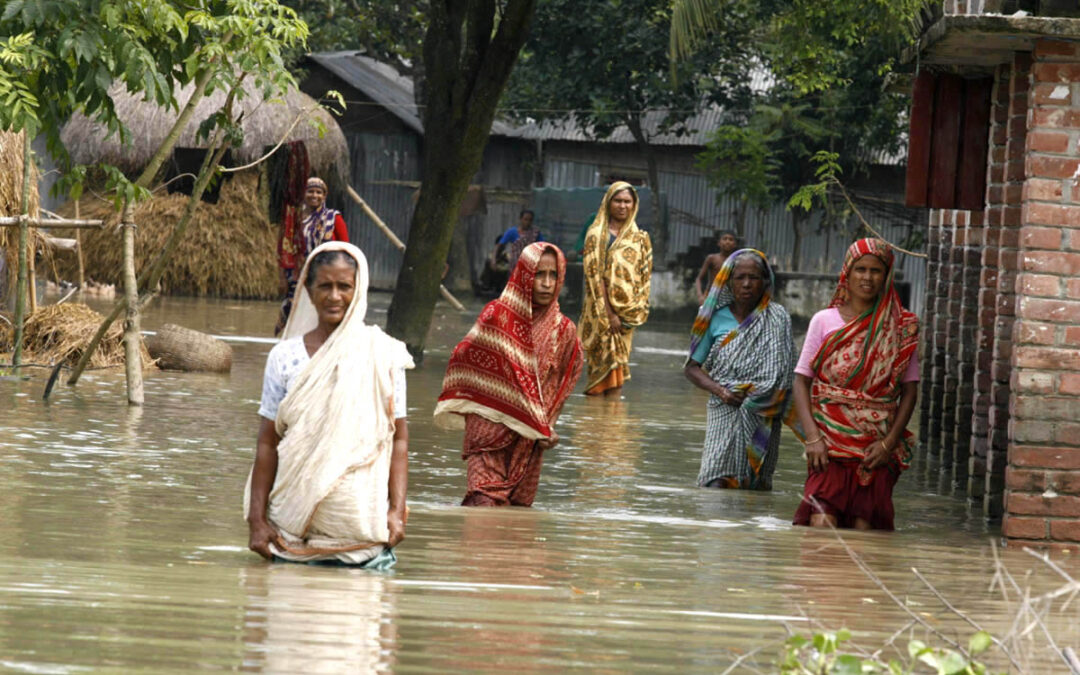
Sep 21, 2019 | Advocacy
The ICJ has joined several hundred organizations working to defend human rights, the environment, and climate justice in a bold declaration setting out a vision and objectives for addressing the climate crisis and the devastating human rights and environmental impact of catastrophic climate change.
The Declaration was adopted at a gathering of the the Peoples’ Summit on Climate, Rights and Human Survival in New York on 18-19 September, which brought together some 200 representatives of Indigenous Peoples, workers, academia, environmental and human rights groups, including the ICJ.
The Declaration warns that “the climate emergency threatens human survival, the environment and the enjoyment of all human rights, for present and future generations.”
It emphasizes that governments and corporations bear the primary responsibility for acting to address and reverse the drivers of climate change.
The signatories to the Declaration agreed to 10 types of actions, including, among others, placing human rights at the core of climate activism, demanding effective access to justice for individuals and communities whose rights are impacted by the climate crisis, and support for environmental human rights defenders.
Download
Universal-Peoples Summit Declaration CC-Advocacy-2019-ENG (full declaration in PDF)
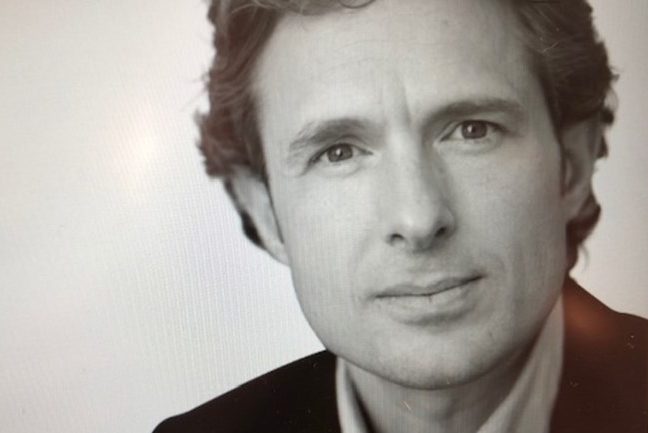
Sep 20, 2019 | News
The ICJ today expressed concern at the killing of lawyer Derk Wiersum, who was shot on 18 September 2019 in broad daylight in front of his home in Amsterdam.
Derk Wiersum was representing a key witness for the prosecution in a high-profile criminal trial against 16 members of a criminal organization, accused of five murders and an attempted murder between 2015 and 2017.
The Netherlands’ counter-terrorism agency, NCTV, is leading a team of police and prosecutors carrying out an investigation into the killing; other lawyers and officials involved in the case have been put under emergency protection.
“The killing of a lawyer, apparently in connection with his work, raises serious concern both for security of lawyers and for the rule of law. We welcome the prompt measures taken by the Dutch authorities to initiate an investigation into this crime, which should lead to the identification and prosecution of the perpetrators. It is also crucial that measures be taken to ensure the safety of other lawyers and other individuals who may be at risk,” said Róisín Pillay, ICJ Europe Programme Director.
Dutch lawyers, prosecutors and judges have issued a joint statement expressing their shock and raising concern at the threat of this attack to the country’s legal system.
Additional information:
International human rights law, including the European Convention on Human Rights to which the Netherlands is a party, requires that States take steps to protect the life and physical integrity of persons who they know or ought to know are at real risk of violence.
According to the UN Basic Principles on the Role of Lawyers, governments must ensure that lawyers are able to perform all of their professional functions without intimidation, hindrance, harassment or improper interference (principle 16). The UN Basic Principles specify that “[w]here the security of lawyers is threatened as a result of discharging their functions, they shall be adequately safeguarded by the authorities” (principle 17).
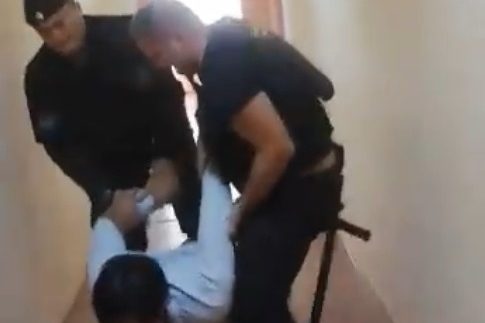
Sep 20, 2019 | Новости, Статьи
МКЮ призывает власти Российской Федерации провести тщательное и независимое расследование в связи с применением физической силы в отношении адвоката Дмитрия Сотникова со стороны сотрудников суда, а затем – полиции.
Оба инцидента имели место 12 сентября этого года и тесно связаны между собой. МКЮ также призывает российские власти привлечь к ответственности виновных в нападении на адвоката. Государственным органам следует принять эффективные меры, чтобы предотвратить подобные нападения в будущем, а также обеспечить, что адвокатам не будут чинить препятствий при представлении интересов своих доверителей, как этого требует закон.
«Применение физической силы в отношении адвоката, который делал все возможное, чтобы защитить своего клиента, противоречит международному праву в области прав человека и стандартам, касающимся роли юристов, – отметил сегодня Тимур Шакиров, старший правовой советник Программы МКЮ по Европе и Центральной Азии. – Также вызывает обеспокоенность тот факт, что Дмитрию Сотникову не позволили представлять интересы своего доверителя, невзирая на четкие положения закона, которые гарантируют право на независимую юридическую помощь и представительство», – добавил Шакиров.
12 сентября московский адвокат Дмитрий Сотников приехал в Тульскую область, чтобы представлять интересы доверителя, обвинявшегося в незаконном обороте наркотиков, в рамках слушания дела в Новомосковском районном суде.
Когда адвокат вошел в зал заседания (после того, как предупредил судью, что опоздает на 10 минут), он сообщил, что представляет интересы своего доверителя Эдуарда Долгинцева и предъявил адвокатское удостоверение и ордер; тогда судья предложила адвокату занять свое место. Когда Сотников попытался задать вопрос одному из ключевых свидетелей по делу, судья заявила, что не давала разрешения на его участие в процессе в качестве защитника. В ответ Сотников указал на свое право выступать в суде в качестве защитника с целью исполнения своих обязанностей по законному юридическому представительству доверителя; несмотря на это, судья ответила, что адвокат мешает суду и приказала ему покинуть зал заседания, после чего внезапно объявила перерыв по делу.
После перерыва работник суда не пустил Сотникова в зал заседания. Когда адвокат снова попытался войти в зал, сотрудник с силой оттолкнул его, так что адвокат упал ничком, после чего на него надели наручники. Адвоката передали сотрудникам полиции, которые отвезли его в наркодиспансер, якобы чтобы провести анализ на содержание наркотических веществ, а затем доставили на допрос в следственный отдел.
Есть сведения о том, что вечером того же дня, после того как Дмитрий Сотников на протяжении восьми часов содержался под стражей в местном отделении Следственного комитета, в отсутствие каких-либо документов, он поинтересовался, был ли заключен под стражу официально. На это ему ответили, что нет, и тогда он попытался уйти, однако на него снова напали, на этот раз следователи, которые нанесли адвокату удары по голове и прищемили пальцы, с силой хлопнув дверью.
Адвокат Сотникова, Светлана Заводцова, которая явилась в местное отделение Следственного комитета, чтобы представлять интересы Дмитрия Сотникова, снимала на видео на мобильный телефон, который силой был отобран у нее, а видео инцидента, который она успела заснять, было удалено.
МКЮ подчеркивает, что для выполнения своих профессиональных обязанностей адвокаты должны иметь возможность действовать без страха подвергнуться какому-либо виду возмездия.
«Отправление правосудия невозможно, если стороны судебного процесса не пользуются всесторонней защитой, а адвокаты не имеют возможности выполнять свои обязанности, не подвергаясь запугиваниям и нападениям», – добавил Шакиров. Для поддержания авторитета системы правосудия необходимо, чтобы нападения на Дмитрия Сотникова стало предметом безотлагательного, тщательного и независимого расследования, а виновные были привлечены к ответственности, подчеркивает МКЮ.
Дополнительные сведения
Статья 19 Основных принципов ООН, касающихся роли юриста, устанавливает, что «(н)и один суд или административный орган, в котором признается право на адвоката, не отказывается признавать права юриста отстаивать в суде интересы своего клиента, за исключением тех случаев, когда юристу было отказано в праве выполнять свои профессиональные обязанности в соответствии с национальным правом и практикой и в соответствии с настоящими принципами».
Согласно пункту 4 статьи 49 Уголовно-процессуального кодекса РФ, адвокат считается законным юридическим представителем обвиняемого по уголовному делу при предъявлении адвокатского удостоверения и ордера; с этого момента адвокат пользуется правом выступать в суде для исполнения своих профессиональных обязанностей.
Есть сведения о том, что в результате обоих инцидентов Дмитрию Сотникову были нанесены телесные повреждения, так что в настоящее время он находится на больничном.
Ранее МКЮ выражала обеспокоенность в связи с запугиванием и насилием в отношении российских адвокатов.
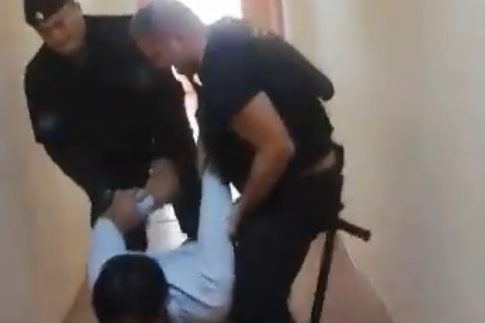
Sep 20, 2019 | News
The ICJ has called on the Russian authorities to institute a thorough and independent investigation into the use of physical force against lawyer Dmitry Sotnikov by court officials and subsequently by the police on 12 September in two separate but linked incidents, and to hold accountable those responsible for the attacks.
The authorities should take effective measures to prevent such attacks in the future, and to ensure that lawyers are not prevented from representing their clients in accordance with law, the ICJ said.
“This use of physical force used against a lawyer solely because he tried to zealously defend his client is contrary to international human rights law and standards, including on the role of lawyers,” Temur Shakirov, Senior Legal Adviser of the ICJ Europe and Central Asia Programme said today.
“It is also of concern that Dmitry Sotnikov was not allowed to represent his client despite clear legal provisions under the law guaranteeing the right to independent legal advice and representation,” he added.
On 12 September, Dmitriy Sotnikov, a Moscow-based lawyer, came to Tula region to represent a client charged with drug trafficking in a hearing at the Novomoskovsk District Court.
Upon entering the courtroom, after having notified the judge that he would be 10 minutes late, Dmitriy Sotnikov reportedly announced that he represented his client Eduard Dolgintsev, presented his licence and a warrant of attorney; he was then told by the judge to sit down.
As he tried to ask one of the key witnesses a question, the judge told him she had never authorized his participation as a lawyer in the proceedings.
In response to this, Sotnikov referred to his rights of audience as a lawyer necessary to fulfill his duties as the legitimate legal representative of his client; however, the judge said Dmitriy Sotnikov was disturbing the court, ordered him to leave the courtroom, and then abruptly announced a recess.
After the recess, Sotnikov was blocked by a court officer from entering the court room. When he attempted to enter the room again, he was pushed face down by the officer and handcuffed.
Thereafter, he was detained by the police, taken to a drug treatment centre, purportedly to ascertain whether he tested positive for drug use, and then brought to the investigative department for questioning.
Reportedly, later that night, after having spent eight hours in the local department of the Investigative Committee without being officially registered, Dmitriy Sotnikov inquired whether he was officially in custody.
On being told that he was not, he attempted to leave and was reportedly again attacked, this time by investigators, who beat him on the head and slammed a door shut on his fingers.
Sotnikov’s lawyer, Svetlana Zavodtsova – who had arrived at the local department of the Investigative Committee to represent Dmitriy Sotnikov – was recording on video on her mobile phone which was taken from her by force while the video of the incident she had recorded was deleted.
The ICJ stresses that in order to fulfill their function lawyers must be able to act without fear and free from fear of reprisals of any kind.
“No justice can be delivered unless the parties to the court process are fully protected and lawyers are able to discharge their functions without harassment, or attack”, Shakirov added. It is now essential for the credibility of the judicial system that the assaults against Dmitry Sotnikov is promptly, thoroughly and independently investigated and that those responsible are brought to justice, the ICJ emphasized.
Additional information
The UN Basic Principles on the Role of Lawyers in its Article 19, specify that “[n]o court or administrative authority before whom the right to counsel is recognized shall refuse to recognize the right of a lawyer to appear before it for his or her client unless that lawyer has been disqualified in accordance with national law and practice and in conformity with these principles”.
Under Article 49.4 of the Criminal Procedure Code of the Russian Federation a lawyer is recognized as the legitimate legal representative of a defendant in a criminal case upon presenting her or his licence and a warrant of attorney; once this is done lawyers enjoy the rights of audience necessary to fulfill their professional duties.
Dmitriy Sotnikov has reportedly sustained injuries from both incidents, and is presently on sick leave undergoing medical treatment for the same.
The ICJ has previously raised concerns at violence and intimidations against Russian lawyers.









